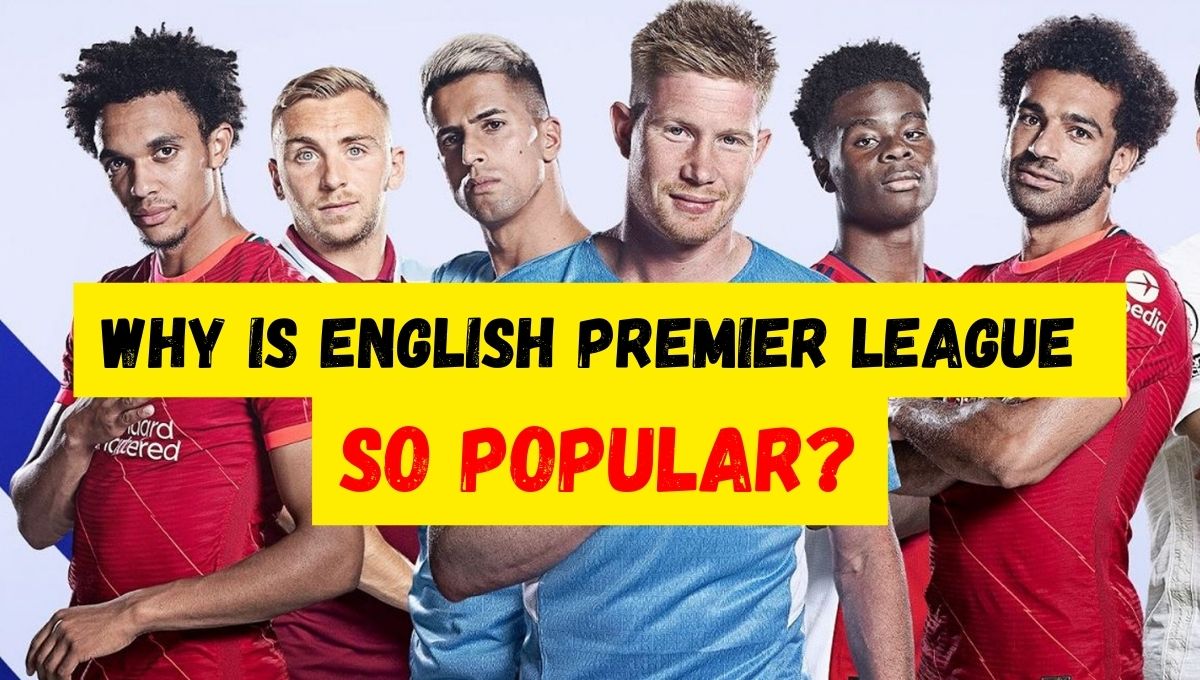The English Premier League (EPL) is immensely popular for several reasons like global fan base, high competition, quality of football, historic clubs and rivalries, and lots more.
Here are key factors that explain the popularity of the English Premier League:
- Global Fan Base:
- The EPL has a massive and diverse global fan base. Fans from different continents follow the league passionately, creating a truly international appeal. This global reach is a result of extensive broadcasting, marketing efforts, and accessibility through various media platforms.
- Competitive Nature:
- The EPL is known for its competitiveness, with a high level of unpredictability in match outcomes. The league lacks a dominant team, and even lower-ranked clubs can produce surprises against stronger opponents. This competitiveness keeps fans engaged throughout the season.
- Quality of Football:
- The EPL showcases a high standard of football with a focus on attacking play, skillful players, and entertaining matches. The league attracts top talent from around the world, contributing to the overall quality of the game.
- Historic Clubs and Rivalries:
- The EPL features historic football clubs with rich traditions and legacies. Rivalries between teams such as Manchester United and Liverpool or Arsenal and Tottenham Hotspur add intense and emotional dimensions to the competition.
- Star Players:
- The EPL attracts some of the best football players globally. The presence of international football stars adds glamour and excitement to the league, drawing fans who are eager to see their favorite players in action.
- Cultural Influence:
- The EPL has become ingrained in global popular culture. Its influence extends beyond football, impacting fashion, music, and lifestyle. Iconic moments and personalities from the league are widely recognized and celebrated.
- Broadcasting Reach:
- The EPL has lucrative broadcasting deals that ensure extensive coverage worldwide. The league’s matches are broadcast in numerous countries, making it accessible to fans across different time zones.
- English Footballing Tradition:
- England has a rich footballing tradition, and the EPL serves as the pinnacle of English football. The league’s structure, promotion and relegation system, and historical significance contribute to its appeal.
- Social Media Presence:
- The EPL actively engages with fans through social media platforms. Clubs and players have a strong presence online, providing fans with behind-the-scenes content, updates, and interactive experiences.
- Modern Stadiums and Facilities:
- The league boasts modern and well-maintained stadiums with state-of-the-art facilities. This enhances the matchday experience for fans attending games and contributes to the overall appeal of the league.
- Innovation and Adaptation:
- The EPL has embraced innovation, including the introduction of video assistant referees (VAR) and continuous efforts to improve the fan experience. The league adapts to changes in technology and fan preferences.
The X Factor: Fantasy Premier League
Fantasy Premier League is played by more than 10.6 million people world wide and the number of players are growing every season.
Here’s why FPL is noteworthy in making Premier League more popular:
- Global Community Engagement:
- Fantasy Premier League allows fans from different countries to create their own fantasy teams, fostering a global community of participants. The competitive aspect of managing a team and competing against friends, colleagues, and strangers adds an extra layer of engagement.
- Player Involvement:
- FPL encourages fans to closely follow individual player performances across various clubs, not just their favorite team. This increased attention to a broader range of players enhances the overall interest in the league.
- Strategic Thinking:
- The game requires strategic thinking, as participants must consider factors such as player form, fixtures, injuries, and transfers. This strategic element adds an analytical aspect to how fans approach and understand the game.
- Extended Fan Interest:
- FPL helps maintain interest in matches that might not involve a participant’s favorite team. Fans are more likely to follow and watch a broader range of matches due to the potential impact on their fantasy teams.
- Social Interaction:
- FPL promotes social interaction among fans. Leagues, whether among friends, coworkers, or online communities, provide a platform for discussions, banter, and friendly competition, fostering a sense of community.
- Influence on Player Perception:
- Fantasy football can influence how fans perceive players. Participants may develop an appreciation for the performances of players they might not have noticed before, adding depth to their understanding of the league.
- Increased TV Viewership:
- The game’s influence can contribute to increased television viewership of Premier League matches, as fans are motivated to watch games featuring players from their fantasy teams.
- Additional Revenue Streams:
- Fantasy Premier League creates additional revenue streams for the league through partnerships, advertisements, and sponsorships associated with the game.
- Season-Long Engagement:
- The season-long nature of Fantasy Premier League ensures sustained engagement throughout the entire football season. Participants remain involved and interested in the league from the first match to the last.
- Educational Element:
- Fantasy football can serve as an educational tool, helping fans understand the dynamics of the sport, player values, and the importance of team balance.
